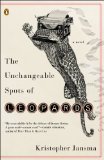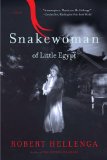Summary | Excerpt | Reading Guide | Discuss | Reviews | Beyond the book | Read-Alikes | Genres & Themes | Author Bio

From the Pulitzer Prize–winning author of March, the journey of a rare illuminated manuscript through centuries of exile and war.
From the Pulitzer Prize–winning author of March, the
journey of a rare illuminated manuscript through centuries of exile
and war
In 1996, Hanna Heath, an Australian rare-book expert, is offered the
job of a lifetime: analysis and conservation of the famed Sarajevo
Haggadah, which has been rescued from Serb shelling during the
Bosnian war. Priceless and beautiful, the book is one of the
earliest Jewish volumes ever to be illuminated with images. When
Hanna, a caustic loner with a passion for her work, discovers a
series of tiny artifacts in its ancient binding—an insect wing
fragment, wine stains, salt crystals, a white hair—she begins to
unlock the book’s mysteries. The reader is ushered into an
exquisitely detailed and atmospheric past, tracing the book’s
journey from its salvation back to its creation.
In Bosnia during World War II, a Muslim risks his life to protect it
from the Nazis. In the hedonistic salons of fin-de-siècle Vienna,
the book becomes a pawn in the struggle against the city’s rising
anti-Semitism. In inquisition-era Venice, a Catholic priest saves it
from burning. In Barcelona in 1492, the scribe who wrote the text
sees his family destroyed by the agonies of enforced exile. And in
Seville in 1480, the reason for the Haggadah’s extraordinary
illuminations is finally disclosed. Hanna’s investigation
unexpectedly plunges her into the intrigues of fine art forgers and
ultra-nationalist fanatics. Her experiences will test her belief in
herself and the man she has come to love.
Inspired by a true story, People of the Book is at once a
novel of sweeping historical grandeur and intimate emotional
intensity, an ambitious, electrifying work by an acclaimed and
beloved author.
The title encapsulates it all: it's about the people of the book, because if not for them, the Haggadah would not have survived. Brooks' larger message, one that's particularly apt today, could ultimately be about how diverse cultures influence and enrich one another...continued
Full Review
 (403 words)
(403 words)
(Reviewed by Lisa A. Goldstein).
Did You Know?

If you liked People of the Book, try these:

The Unchangeable Spots of Leopards
by Kristopher Jansma
Published 2014
An inventive and witty debut about a young man's quest to become a writer and the misadventures in life and love that take him around the globe

by Robert Hellenga
Published 2011
A novel packed with wit, substance, and emotional depth, Snakewoman of Little Egypt delivers Robert Hellenga at the top of his form.